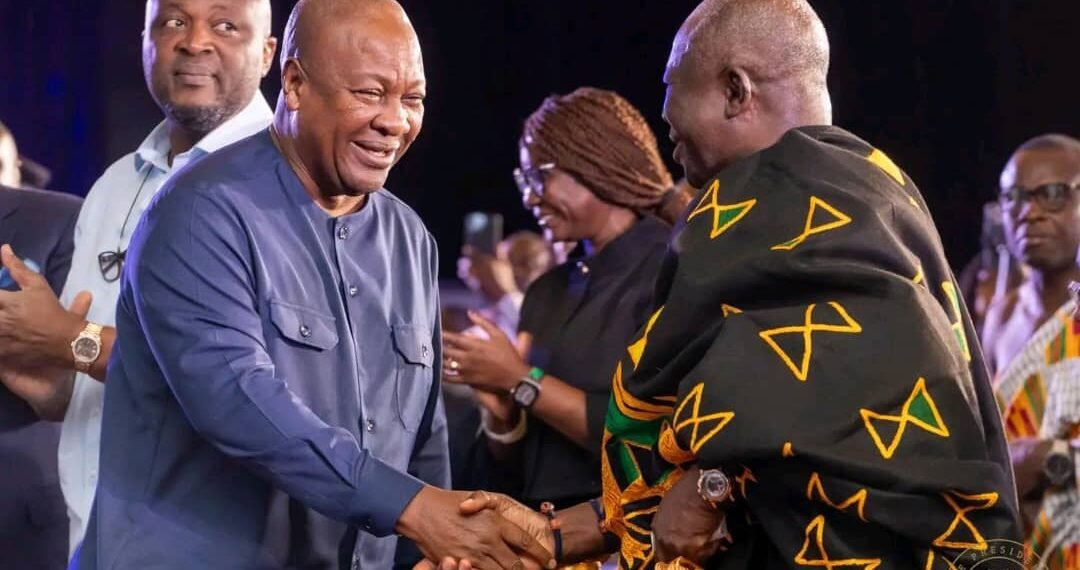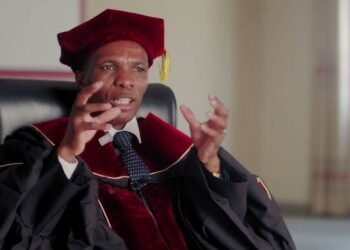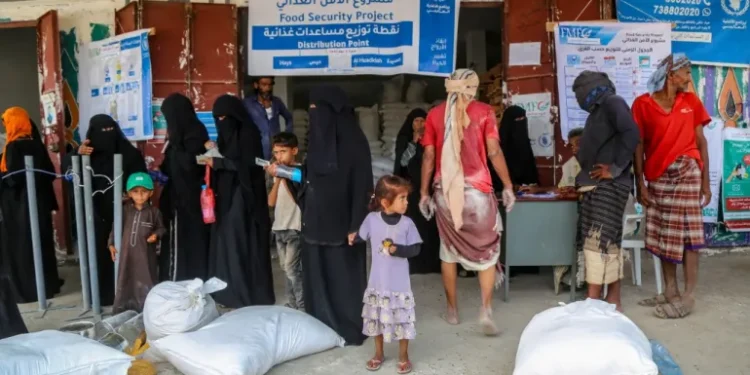Otumfuo Osei Tutu II, the Asantehene, has described Ghana’s Gold Board (GoldBod) policy as a forward-thinking initiative that could unlock new investment opportunities in the mining sector, while also challenging the nation to confront the growing threat of illegal mining with greater determination.
Speaking at the Mining in Motion Summit in Accra, the revered monarch endorsed the government’s move to use gold as a strategic commodity to strengthen the cedi, describing it as a “creative initiative” with the potential to energize the industry.
“The emergence of the new Goldbod is a creative initiative we need for the rise of the industry, increasing the prospect for more investment and higher yields.
“It injects a new urgency to the challenges we are trying to address.”
Otumfuo Osei Tutu II, Asantehene
The GoldBod initiative, introduced under President John Dramani Mahama’s administration and administered by the newly established Ghana Gold Board, allows Ghana to leverage domestically mined gold to ease forex pressure.

The Goldbod was created as part of Ghana’s broader mineral reforms to formalize gold exports, streamline licensing, and introduce traceability systems for small-scale mining activities.
It replaces fragmented regulatory arrangements previously shared between the defunct Precious Minerals Marketing Company (PMMC) and the Ministry of Lands and Natural Resources.
The Asantehene also emphasized the Goldbod’s potential to ensure transparency, increase state revenue, and promote ethical practices in the sector.
“By consolidating oversight under the Goldbod, we can create a strong, trusted platform that not only manages the country’s gold trade but enhances investor confidence in Ghana’s mining space.”
Otumfuo Osei Tutu II, Asantehene
Galamsey: A National Crisis Fueled by Corruption
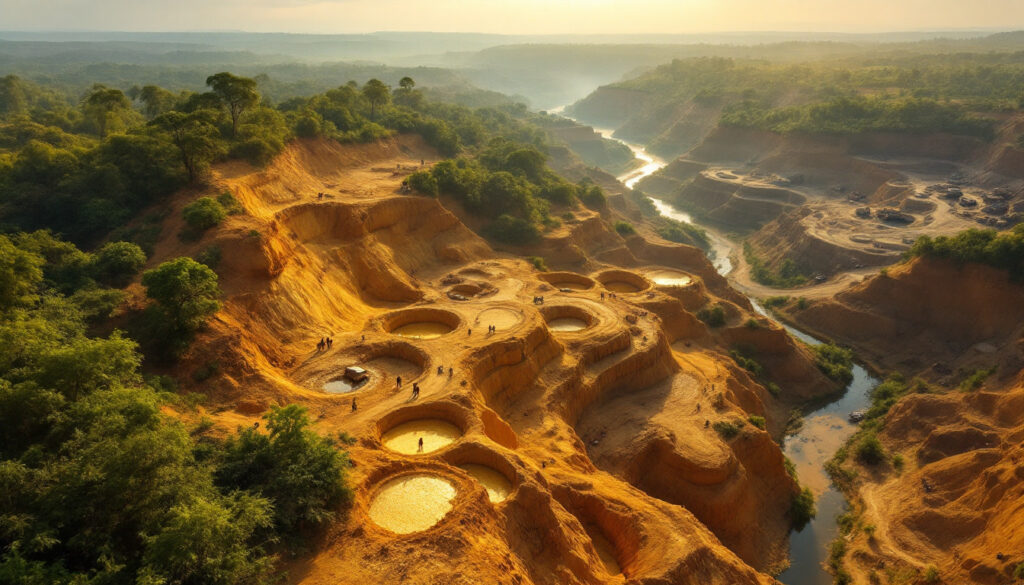
While praising the gold trading framework, Otumfuo Osei Tutu II used the opportunity to draw attention to the escalating environmental devastation caused by illegal mining, commonly referred to as galamsey.
In unambiguous terms, he blamed persistent corruption, poor political judgment, and regulatory lapses for the state’s inability to curtail the illegal practice.
“The pollution of our water bodies, the destruction of our forests, and the degradation of our virgin lands cannot be allowed to continue unchecked.
“It cannot be denied that the cocktail of regulatory failures, political miscalculation, and corruption has combined to make the curbing of the menace more challenging.”
Otumfuo Osei Tutu II, Asantehene
His remarks struck a chord with industry leaders, civil society actors, and policy makers gathered at the high-level summit, which was themed around sustainable mining and environmental governance.
Otumfuo called on government agencies, political leaders, and mining companies to take a more holistic and consistent approach to combating galamsey, warning that the environmental consequences could cripple the country’s development if left unresolved.
“We have the opportunity to calmly dissect the policy options and tools available to deal with the problem. Let us take this challenge seriously and act with urgency.”
Otumfuo Osei Tutu II, Asantehene
Otumfuo Osei Tutu II’s address placed significant emphasis on leadership accountability and inter-agency collaboration.
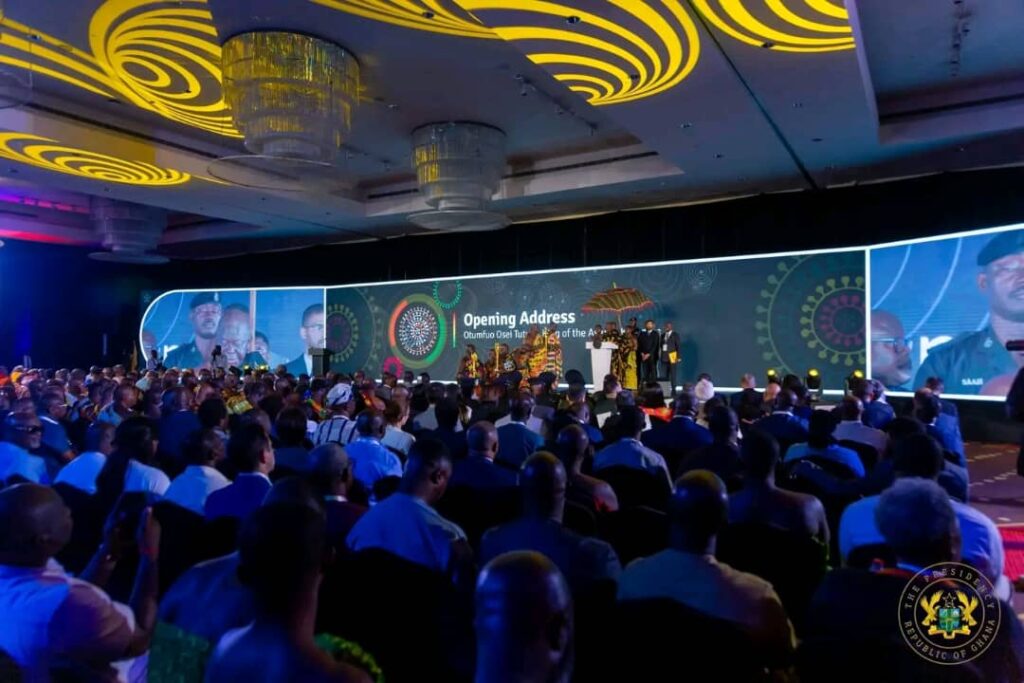
He called for greater inclusion of traditional authorities in national decision-making processes around land use, mining permits, and environmental protection, citing the custodial role chiefs play over lands and natural resources.
“Our leadership role must extend beyond advocacy. We must be fully integrated into the policy ecosystem, not just for consultation but for implementation.”
Otumfuo Osei Tutu II, Asantehene
He also urged Ghanaians to take environmental stewardship seriously, highlighting the importance of civic education, youth engagement, and community vigilance in fighting illegal mining and preserving the country’s natural heritage.
As Ghana works to reposition its mining sector to meet sustainability standards and global investor expectations, the Asantehene’s comments provide a timely reminder of the stakes involved.
While the GoldBod initiative offers hope for macroeconomic relief and mining sector revitalization, the mounting environmental cost of illegal operations cannot be ignored.
Otumfuo’s dual message—of strategic innovation and ethical responsibility—will likely reverberate across the sector and add fresh impetus to ongoing reforms aimed at balancing economic gains with ecological preservation.
READ ALSO: Recruitment Fraud Prompts Ghana Immigration Warning

